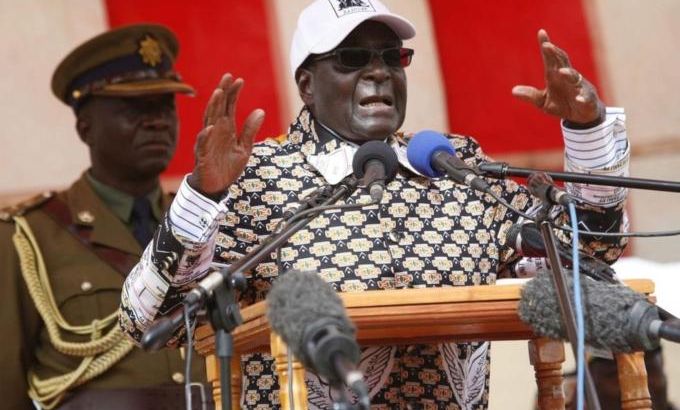
Zimbabwe: The dawn of a new era?
We ask whether the country’s landmark polls will signal change or see Robert Mugabe continue to hold on to power.
Zimbabwe’s long-serving president, Robert Mugabe, is seeking to extend his 33 years in power.
Zimbabwe gained independence in 1980 and Mugabe was named prime minister. He has been the country’s only known leader since, and Mugabe is determined that will not be changing – for now at least.
At 89, he is seeking a fifth term as president, campaigning under his party, the Zimbabwe African National Union – Patriotic Front (ZANU-PF).
In a way one is looking at a completely different age now compared to 2008 ... These elections are taking place in a period of calm. I think Zimbabweans right across the political spectrum have heeded the call from all political parties and civil leadership to behave responsibly and not to be tempted to be involved in the kind of orgies that became an index of 2008.
Mugabe was a key figure in the struggle for Zimbabwe’s independence from Britain. He and Joshua Nkomo joined forces in 1987 to form ZANU-PF party.
When first elected, he was praised for reaching out to the white minority. But in the mid-1990s, he embarked on a programme of land redistribution. And in 2002, the European Union imposed sanctions on Zimbabwe in response to human rights abuses.
This presidential poll and parliamentary elections will be the first to be held under a new constitution, which was overwhelmingly approved in a March referendum.
The new draft constitution now limits the president to two five-year terms.
But the timing of the elections has raised some concerns, with Mugabe giving his rivals just six weeks to prepare.
Mugabe’s main rival, Morgan Tsvangirai, the leader of the opposition Movement for Democratic Change (MDC), has accused Mugabe of acting unconstitutionally by calling the election. The polls will mark the end of a troubled coalition between the two.
Their sometimes tempestuous power-sharing arrangement was born out of disputed presidential elections in 2008.
Tsvangirai’s won the first round, but according to official results, not by enough for outright victory.
The dispute sparked violent ongoing confrontation that was only ended by an uneasy power-sharing deal. Mugabe retained the presidency and Tsvangirai became prime minister.
Tsvangirai was sworn in as prime minister in February 2009. As an opposition figure he took on the government in the late 1990s, leading a series of strikes. As leader of the MDC, he has faced intimidation, treason charges and assault. Tsvangirai was once charged with plotting to kill Mugabe.
It took until January 2013 for Mugabe and Tsvangirai to reach a deal over a new draft constitution. It allowed for elections to be held within 90 days from the dissolution of parliament. That ends at the end of September, but Mugabe issued a presidential decree in June, setting the date for July 31.
So, will the landmark polls see Mugabe continue to hang on to power, or mark the dawning of a new era for Zimbabwe?
To discuss this, Inside Story, with presenter Mike Hanna, is joined by guests: Petina Gappah, a lawyer and award-winning author on Zimbabwean culture; Nhlanhla Dube, a spokesman for the Movement for Democratic Change; and George Shire, a scholar and commentator on Zimbabwe, who has written articles expressing support for Robert Mugabe’s ZANU-PF party.
| “There is still a tacit reminder of the previous violence, while it is not active in the environment, but people are reminded easily when statements … are issued. But also you look at the problems that are created by the mishandling of the electoral process by the Zimbabwean electoral commission and you say to yourself this is a pointer to an election whose outcome might be questioned, and therefore if it’s questioned, the legitimacy argument might still come back to haunt us.”
– Nhlanhla Dube, MDC spokesman |